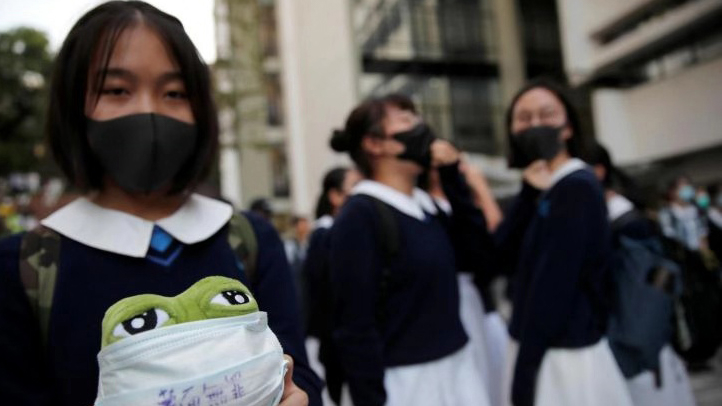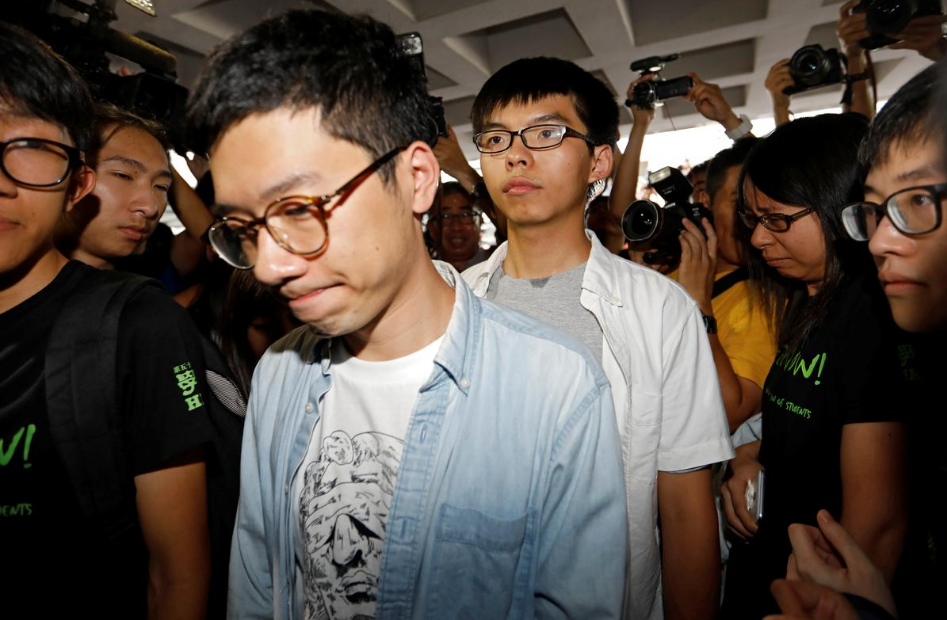03:25

Hong Kong police urged the remaining rioters to leave the Hong Kong Polytechnic University (PolyU) campus as soon as possible. At least eight protesters holed up on the campus surrendered to the police early Friday.
On Thursday, a 12-year-old boy became the youngest person to be convicted over the Hong Kong protests since they broke out in June. He pleaded guilty to vandalizing a police station and a railway interchange last month.
Students have long been at the forefront of social movements around the world. Now, why are protests attracting younger crowds in Hong Kong?
In the name of defending it, the protesters have violently ruined their university. Dozens of those left behind are unusually young. A 15-year-old boy with a lethal weapon said his parents were telling him to come home. The boy said he had been helping mix things in a chemical laboratory turned into an arsenal.
Everyone who stayed behind wanted out. A guy showed the sewage area where some of them escaped the night before. He said he tried charging out and walking through a narrow path. But it was all too dangerous and he had to turn back. By trying to escape the campus, these youngsters are in fact, attempting to escape consequences that they were neither aware of, nor able to afford.
Luckily, those under 18 can just walk out. "For those who are under 18 years old, as long as they drop their weapons and leave the PolyU campus peacefully and in orderly fashion, the police will arrange to get them out immediately. They will be asked to fill out some personal information and also have their photos taken," said Ho Yun-sing, Chief Superintendent of Yau Tsim District.
High school students across the city have been gathering for protests. The city's secondary schools have become the latest battleground. A declining number of young people in Hong Kong nowadays identify themselves as "Chinese".

Student leaders Nathan Law and Joshua Wong walk into the High Court to hear the verdict on charges relating to the 2014 pro-democracy Umbrella Movement, also known as Occupy Central protests, in Hong Kong, China, August 17, 2017. /Reuters Photo
Student leaders Nathan Law and Joshua Wong walk into the High Court to hear the verdict on charges relating to the 2014 pro-democracy Umbrella Movement, also known as Occupy Central protests, in Hong Kong, China, August 17, 2017. /Reuters Photo
When Hong Kong was returned to China in 1997, close to half of those between the ages of 18 and 29 considered themselves "Hong Kongers". That's according to the Hong Kong Public Opinion Research Institute. The latest numbers, from June, show that number has risen to 75 percent.
The city's educational system could be playing a role in this. Hong Kong Businesswoman Annie Wu Suk-ching said, "It needs to start with the textbook, to help the kids understand they are Chinese. Hong Kong also needs to have proper education in Chinese history. There hasn't been a proper education."
Hong Kong parents have posted their children's textbooks online, questioning the contents and purposes.
Chan Chi-Hing, who gives classes of general education in Hong Kong, said he thinks what the children are learning nowadays could be misleading. "It's very unfortunate that the teachers nowadays, especially young teachers, have their own opinions towards the Chinese mainland. So as educators they are influencing their students with agitative speeches and negative emotions. But the students are just like blank slates: They can be easily affected by their teachers."
Young teens have grown up to play bigger roles in the city's political movement.
Joshua Wong, one of the most recognizable faces of Hong Kong's protest movement, rose to prominence in 2011.
That's when he protested against a government plan to introduce a national education curriculum – when he was just 14 years old.